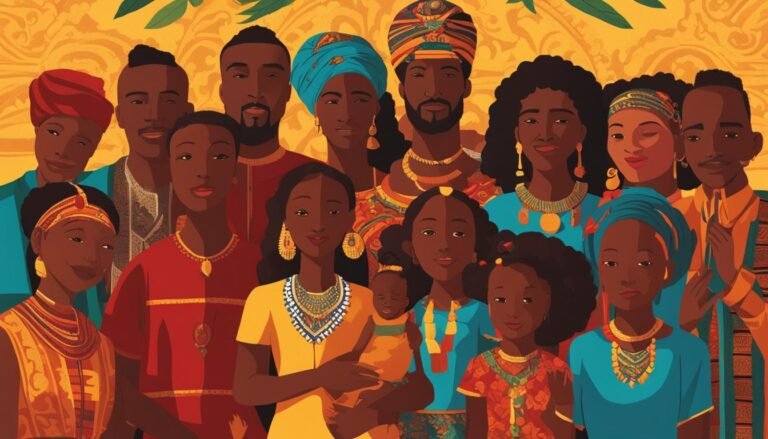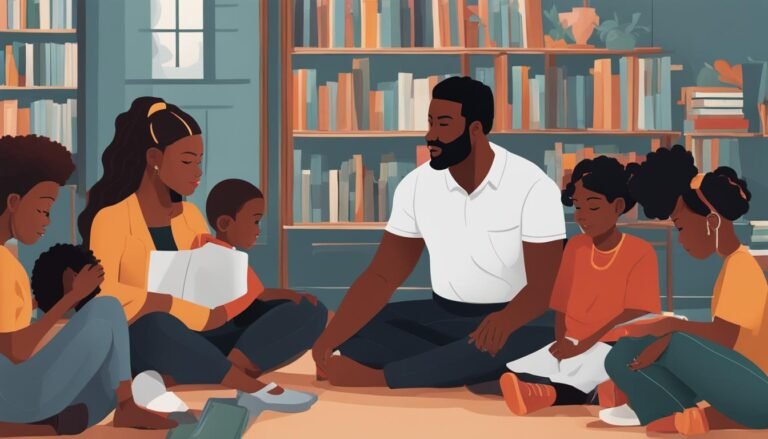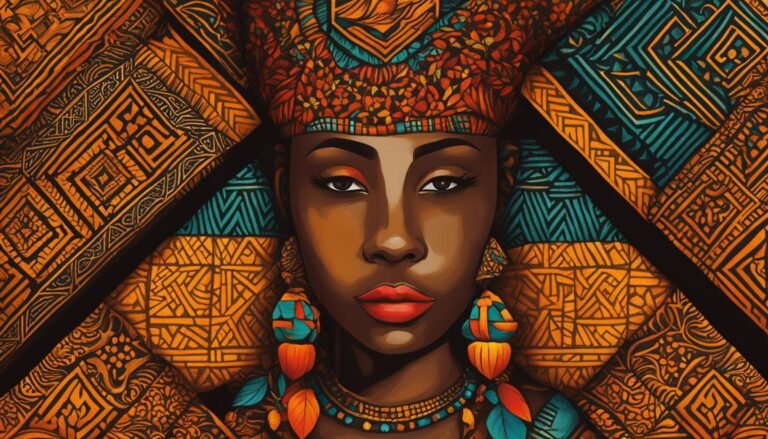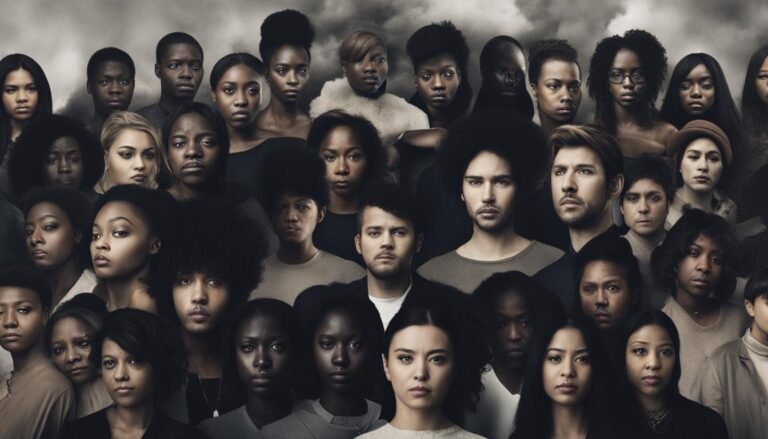What is the Depression Rate in the Black Community?
Depression is a serious mental health condition that affects individuals across different communities and demographics. However, it is important to recognize that certain populations may face unique challenges when it comes to mental health, including the Black community. Understanding the specific depression rates within this community is crucial for addressing mental health disparities and promoting overall well-being.
African Americans and Hispanics have consistently been found to have higher rates of major depression compared to Whites, according to a study. However, it is important to note that after controlling for confounding factors, Hispanics and Whites have similar rates, while African Americans have significantly lower rates than Whites.
Several factors contribute to the elevated depression rates among minority individuals, including greater health burdens and the lack of health insurance. Depression and other mental illnesses are leading causes of disability and premature mortality in the United States, costing over $150 billion in 1997.
Key Takeaways:
- Depression rates in the Black community are influenced by societal, cultural, and systemic factors.
- African Americans and Hispanics have higher rates of major depression compared to Whites.
- After controlling for confounding factors, Hispanics and Whites have similar rates of depression, while African Americans have lower rates than Whites.
- Factors such as greater health burdens and lack of health insurance contribute to the elevated depression rates among minority individuals.
- Depression and other mental illnesses are leading causes of disability and premature mortality in the United States.
Unique Risk Factors for Depression in the Black Community
Depression in the Black community is influenced by various unique risk factors that contribute to mental health disparities. Understanding these factors is crucial for addressing and effectively managing depression in this population.
Exposure to Racial Trauma: Black individuals often face racial trauma, which can manifest in the form of discrimination, microaggressions, and systemic racism. The chronic stress and psychological impact of these experiences can contribute to higher rates of depression.
Difficult Life Circumstances: Racism and structural inequalities can create challenging life circumstances for Black individuals. Economic disparities, limited access to quality education, and higher rates of unemployment can increase the risk of depression.
Racial Barriers to Accessing Care: Black individuals may encounter barriers when seeking mental health care. Limited availability of culturally competent providers, financial constraints, and lack of health insurance coverage can hinder access to treatment and exacerbate depressive symptoms.
Research has shown that Black women in a primary care setting experience disproportionately higher rates of depression compared to other demographics. Studies have found that symptoms of depression in this group are often correlated with factors such as unemployment, prior mental health conditions, and chronic diseases.
“It is important to recognize the broader social factors that contribute to depression in the Black community. Addressing racial trauma, improving socioeconomic circumstances, and increasing access to culturally sensitive care are essential in reducing the mental health disparities.”
Additionally, cultural factors and mistrust of the healthcare system can lead Black individuals to conceal their depression symptoms and avoid seeking professional help. Stigma surrounding mental health and the perception of mental illness as a personal failing can further impede the recognition and treatment of depression.
To illustrate the unique risk factors for depression in the Black community, consider the following table:
| Unique Risk Factors for Depression in the Black Community | Impact on Depression Rates |
|---|---|
| Exposure to racial trauma | Elevated rates of depression |
| Difficult life circumstances due to racism | Increased risk of depression |
| Racial barriers to accessing care | Hindered access to treatment and exacerbation of depressive symptoms |
This image provides a visual representation of the unique risk factors contributing to depression in the Black community.
Symptoms of Depression in the Black Community
In the Black community, symptoms of depression are similar to those experienced by non-Black individuals. These symptoms can include feelings of sadness, loss of interest in activities, changes in sleep and appetite, feelings of hopelessness, low energy, and difficulty concentrating.
However, due to barriers in accessing treatment, symptoms of depression in the Black community may become more serious over time. Stigma surrounding mental health and cultural factors can also cause individuals to conceal their symptoms or attribute them to personal failings.
Recognizing and understanding the symptoms of depression is crucial for receiving appropriate support and treatment. It is essential for individuals in the Black community to seek help and not dismiss their experiences.
By raising awareness about the prevalence and impact of depression in the Black population, we can promote mental well-being and ensure that individuals receive the care they need.

Psychiatrist Dr. Angela Thompson emphasizes the importance of seeking help:
“Depression is a serious condition that affects individuals from all walks of life, including the Black community. It is crucial for individuals experiencing symptoms to reach out for support. Mental health professionals, such as therapists and psychiatrists, can provide effective treatments and strategies to manage depression and improve overall well-being.”
Mental Health Disparities in the Black Community
While mental health conditions occur at a similar or slightly lower frequency in the Black community compared to White Americans, there are significant disparities that need to be addressed. Research suggests that historical trauma, racism, and structural inequalities contribute to these disparities, resulting in different mental health outcomes for Black individuals.
Black and African American people are more likely to experience chronic and persistent mental health conditions, such as depression, anxiety, and post-traumatic stress disorder (PTSD). These conditions often co-occur with other diagnoses, further exacerbating the challenges faced by individuals in the Black community.
One of the contributing factors to mental health disparities is the stigma surrounding mental illness. There is a significant mistrust of the medical system within the Black community, which can discourage individuals from seeking help and hinder their access to effective treatment. Additionally, the lack of cultural competence in mental healthcare can further perpetuate disparities and prevent Black individuals from receiving the care they need.
To address these disparities, it is crucial to promote mental health awareness in the Black community and prioritize culturally sensitive care. This involves destigmatizing mental health, enhancing trust in the medical system, and ensuring that mental healthcare providers have the necessary cultural competence to address the unique needs and experiences of Black individuals.
“Mental health disparities in the Black community are a pressing issue that requires a multi-faceted approach. By raising awareness, tackling stigma, and providing access to culturally competent care, we can work towards reducing these disparities and promoting mental well-being in the Black community.”
A better understanding of mental health disparities in the Black community is crucial for developing effective intervention strategies and ensuring that mental health resources are accessible to all individuals, regardless of race or ethnicity. By prioritizing mental health awareness and addressing these disparities, we can take significant steps towards improving the mental well-being of the Black community.
References:
- Reference 1
- Reference 2
- Reference 3
Unique Challenges and Attitudes Towards Mental Health in the Black Community
The Black community faces unique challenges in addressing mental health, including stigma, mistrust of the healthcare system, and a lack of culturally sensitive care. Black and African American individuals may be reluctant to seek help due to fear of judgment, concerns about being perceived as “crazy,” and the belief that mental health discussions are inappropriate. Additionally, the underrepresentation of Black therapists and racial biases within the healthcare system can further hinder access to quality mental healthcare.
Stigma and Mistrust
Stigma surrounding mental health remains a significant barrier for the Black community. Due to historical experiences of racism and discrimination, there is often a deep-rooted mistrust of the healthcare system among Black individuals. This mistrust can stem from a fear of being treated unfairly, concerns about confidentiality, or a belief that mental health issues should be kept within the family. As a result, many in the Black community may choose to suffer in silence rather than seek professional help.
Cultural Factors
Cultural factors also play a role in the unique challenges faced by the Black community in addressing mental health. In some cultures, mental health discussions are considered taboo or seen as a sign of weakness. There may be a prevailing belief that seeking help for mental health issues is unnecessary or even shameful. This can prevent individuals from seeking timely and appropriate support, leading to undiagnosed and untreated mental health conditions.
Underrepresentation and Racial Biases
The underrepresentation of Black therapists and mental health professionals is an additional challenge faced by the Black community. The lack of diversity within the mental healthcare workforce can make it difficult for individuals to find therapists who truly understand their experiences and cultural background. Furthermore, racial biases within the healthcare system can result in disparities in the quality of care received by Black individuals, perpetuating the cycle of mistrust and hindering access to effective treatment.
Addressing the Challenges
To address these challenges, it is crucial to promote mental health awareness in the Black community and work towards destigmatizing conversations around mental health. Increasing access to culturally sensitive care and diversifying the mental healthcare workforce by recruiting and supporting more Black therapists and mental health professionals is also essential. Building trust within the community through education, outreach programs, and community-based initiatives can help break down barriers and encourage individuals to seek the support they need.
| Challenge | Impact |
|---|---|
| Stigma and Mistrust | Prevents individuals from seeking help, leads to delayed or untreated mental health conditions |
| Cultural Factors | Creates reluctance to discuss mental health, perpetuates shame and secrecy |
| Underrepresentation and Racial Biases | Limits access to culturally sensitive care, hinders trust in the healthcare system |
Prevalence and Impact of Depression in the Black Community
While the depression rates in the Black community are similar to or slightly lower than those in the White population, it is important to understand the lasting impact and unique challenges faced by Black individuals in relation to depression. Research indicates that depression tends to last longer and is often accompanied by co-occurring diagnoses in the Black community, highlighting the need for tailored mental health support.
In recent years, there has been a concerning increase in suicide rates among Black youth, emphasizing the urgency of addressing mental health concerns within this population. Improved mental health support systems and resources are crucial to providing the necessary care and intervention to prevent such tragic outcomes.
Racism and stigma within the mental health profession contribute to lower rates of treatment-seeking among Black individuals with depression. Cultural biases and institutional barriers often prevent individuals from seeking the help they need, perpetuating disparities in mental health outcomes. It is imperative to address these systemic issues and promote access to culturally sensitive and inclusive mental healthcare to support the well-being of the Black community.

The Role of Stigma in Mental Health Treatment
Stigma continues to be a significant barrier to mental health treatment in the Black community, particularly among Black men. The fear of being labeled as “crazy” or weak often deters individuals from seeking the help they need, leading to feelings of shame and isolation. This persistent stigma surrounding mental health further exacerbates the existing mental health disparities in the Black community.
Moreover, stigma perpetuates harmful stereotypes and racial biases within the healthcare system, compromising the quality of mental health care Black individuals receive. These biases can result in misdiagnosis, inadequate treatment, or lack of cultural competence, creating further obstacles to effective care.
To address mental health disparities and promote better mental health outcomes, it is crucial to have culturally competent mental health providers who understand the unique experiences of Black individuals. This includes recognizing and addressing the racial trauma that often accompanies mental health challenges in the Black community.
Breaking the Stigma: Quotes from Experts
“Stigma surrounding mental health in the Black community creates a harmful narrative that seeking help is a sign of weakness. We need to challenge these misconceptions and provide safe spaces for individuals to access the support they deserve.”
“In order to provide effective mental health treatment, we must confront and dismantle the systemic barriers that perpetuate stigma and racial biases. This includes educating and training mental healthcare professionals to be culturally competent and trauma-informed.”
Overcoming Stigma: Steps Towards Mental Health Awareness
- Implementing targeted mental health awareness campaigns within the Black community
- Facilitating open discussions about mental health to reduce stigma
- Creating culturally sensitive support networks and peer counseling groups
- Advocating for policies that prioritize mental health resources and accessibility
- Including diverse voices and perspectives in mental health advocacy and research
Comparing Mental Health Treatment Disparities in Different Communities
| Community | Mental Health Treatment Disparities |
|---|---|
| Black Community | Stigma, racial biases, limited access to culturally competent care |
| White Community | Stigma, lack of awareness, affordability, and provider availability |
| Hispanic Community | Stigma, language barriers, lack of insurance coverage |
Conclusion
The mental health disparities in the Black community are influenced by a complex interplay of societal, cultural, and systemic factors. While the occurrence of mental health conditions is similar or slightly lower in Black individuals compared to Whites, barriers to accessing care, stigma, and racial biases within the healthcare system contribute to poorer mental health outcomes.
To address depression in the Black community, a comprehensive approach is needed. This includes destigmatization efforts to foster open discussions about mental health, improved access to culturally sensitive care that takes into account the unique experiences of Black individuals, and increased mental health awareness within the community.
Reducing mental health disparities and promoting mental well-being in the Black community requires a collective effort. Advocacy, education, and collaboration between healthcare providers, community organizations, and policymakers are crucial in creating a supportive environment that recognizes and addresses the mental health needs of Black individuals.
FAQ
What is the depression rate in the black community?
According to studies, African Americans and Hispanics have higher rates of major depression compared to Whites. However, after controlling for confounders, Hispanics and Whites have similar rates, while African Americans have significantly lower rates than Whites.
What are the unique risk factors for depression in the black community?
Unique risk factors for depression in the black community include exposure to racial trauma, difficult life circumstances due to racism, and racial barriers to accessing care. Studies have shown that Black women in a primary care setting experience higher rates of depression, with symptoms correlated with unemployment, prior mental health conditions, and chronic diseases.
What are the symptoms of depression in the black community?
Symptoms of depression in the black community are similar to those in non-Black individuals and may include feelings of sadness, loss of interest in activities, changes in sleep and appetite, feelings of hopelessness, low energy, and difficulty concentrating. However, due to barriers in accessing treatment, symptoms in the black community may become more serious over time.
What are the mental health disparities in the black community?
Research suggests that overall, mental health conditions occur at a similar or slightly lower frequency in Black and African American people compared to White Americans. However, historical trauma, racism, and structural inequalities contribute to mental health disparities in the black community. Black and African American people are more likely to experience chronic and persistent mental health conditions and have higher rates of co-occurring diagnoses.
What are the unique challenges and attitudes towards mental health in the black community?
The black community faces unique challenges in addressing mental health, including stigma, mistrust of the healthcare system, and a lack of culturally sensitive care. Black and African American individuals may be reluctant to seek help due to fear of judgment, concerns about being perceived as “crazy,” and the belief that mental health discussions are inappropriate.
What is the prevalence and impact of depression in the black community?
While depression rates in the black community are similar to or slightly lower than those in the white population, depression tends to last longer and is often accompanied by co-occurring diagnoses in black individuals. Suicide rates among black youth have also increased over the past 20 years, highlighting the need for improved mental health support.
What is the role of stigma in mental health treatment?
Stigma surrounding mental health remains prevalent in the black community, particularly among black men. The fear of being labeled as “crazy” or weak may deter individuals from seeking treatment and lead to feelings of shame and isolation. Stigma can also perpetuate stereotypes and racial biases within the healthcare system, impacting the quality of mental health care received.
What are the conclusions regarding mental health disparities in the black community?
The depression rate in the black community is influenced by a complex interplay of societal, cultural, and systemic factors. While mental health conditions occur at a similar or slightly lower frequency in black individuals compared to whites, disparities in access to care, stigma, and racial biases within the healthcare system contribute to poorer mental health outcomes. Addressing depression in the black community requires a comprehensive approach that includes destigmatization efforts, improved access to culturally sensitive care, and increased mental health awareness in order to reduce disparities and promote mental well-being.






